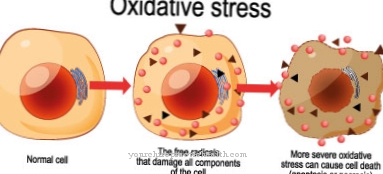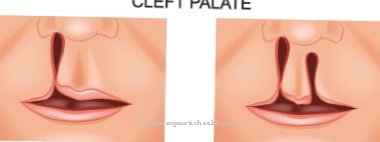What is spermatitis?

© SciePro - stock.adobe.com
A Spermatitis or Funiculitis refers to inflammation of the man's vas deferens. Most often this occurs as a result of inflammation of the testicles, epididymis, or vas deferens. Another common cause can be gonorrhea (colloquially called gonorrhea).
Spermatitis is usually associated with great pain and symptoms such as fever and must be examined and treated by a doctor. Because spermatitis occurs quite often if the basic cause of it was not treated in good time or was not treated properly. Long-term consequences such as permanent damage to the affected spermatic cord due to adhesions and a subsequent impairment of fertility cannot be ruled out.
causes
Since it usually follows inflammation of the vas deferens, testicles or epididymis, the underlying cause of funiculitis is often found in these. However, these are usually caused by a bacterial inflammation of the urinary tract or the prostate, so that the root cause of spermatitis can also be found in these.
According to numerous medical records and studies, testicular inflammation occurs significantly more frequently than inflammation of the epididymis. Inflammation of the vas deferens occurs even more frequently, however, as the pathogens from the urinary tract or the prostate spread through them to the male sexual organs. Often, spermatitis does not appear after, but rather during inflammation of the testicles, prostate or vas deferens.
Another cause of inflammation of the male genital organs and thus often the spermatic cords are chlamydia in men under the age of 35. In men over the age of 35, however, spermatitis is more common in men who wear a urinary catheter.
Symptoms, ailments & signs
The symptoms of spermatitis are very similar to those of inflammation of the vas deferens or testicles - also because they are often associated with them. As a rule, the first severe symptoms of funiculitis appear within 7 to 14 days after the onset of the disease. Since an inflammation of the spermatic cords is usually a secondary disease, the symptoms of the underlying inflammation often turn into the symptoms of funiculitis.
Patients often report that the symptoms are getting worse or first subsiding and then reappearing. Typical symptoms of spermatitis are high fever (up to 40 ° C), slight swelling of the testicles, warm and reddened skin, and pain in the testicles, lower abdomen and groin.
Diagnosis & course of disease
Since spermatitis usually occurs together with other inflammation of the male genital organs and the symptoms are very similar, it can be difficult to diagnose them alone. Nevertheless, it is important to consult a urologist - in good time when the first symptoms appear. Only he or she can accurately assess the symptoms based on their type and location and thus initiate a suitable therapy.
This may even happen before the underlying inflammation spreads to the spermatic cords. Incidentally, medical specialists now have at their disposal tools such as ultrasound and X-ray examinations of the lower abdomen, groin and testicles, as well as blood and urine tests. In addition, the doctor will make a diagnosis by interviewing the patient and performing a physical exam.
Complications
As a rule, spermatitis can be treated well with antibiotics. At the same time, pain killers are administered, since the inflammation of the spermatic cords is associated with severe and excruciating pain. The pain can also be relieved by applying cool compresses to the abdomen.
However, it should be noted that the envelopes should never be too cold. The function of the testicles and spermatic cords is dependent on heat. If the treatment is too cold, this can lead to permanent functional restrictions. As part of the antibiotic treatment, the spermatitis should have subsided after two weeks. In rare cases, however, the symptoms persist despite the therapy.
Then possibly pus-containing inflammations have formed, which threaten the function of the testicles and the spermatic cords. In these cases, extremely painful swelling of the spermatic cord occurs, which can lead to fibrosis and adhesions. This is a complication of spermatitis and as a consequence there is a risk of infertility. Surgery is necessary in these circumstances.
If this is done in time, fertility can be preserved. However, in very rare cases, sometimes it's not just about maintaining fertility, but even about saving life. Particularly in people with other underlying diseases or in immunocompromised patients, the infection can spread to the entire body and lead to life-threatening complications.
When should you go to the doctor?
Spermatitis should always be treated by a doctor. In most cases, self-healing cannot occur, so that the person affected is dependent on a medical diagnosis and examination. Only with an early medical examination and treatment can further complications be prevented. For this reason, a doctor should be consulted at the first sign of spermatitis. A doctor should be consulted if the person concerned experiences severe pain in the penis or testicles.
In many cases, this pain occurs for no particular reason and does not go away on its own. Severe swellings in these areas can also indicate spermatitis. Most patients also suffer from a fever or severe pain in the abdomen and flanks. If these symptoms persist, a doctor must be consulted in any case.
In most cases, spermatitis can be treated fairly well by a urologist or general practitioner. There are no particular complications and there is usually complete healing.
Therapy & Treatment
Usually, funiculitis, such as inflammation of the testicles, is treated with antibiotics and pain relievers. In addition, the affected patient is prescribed a lot of rest or even bed rest for the period of recovery, which can take up to two weeks. Pain and feelings of warmth can also be relieved not only with painkillers, but also with cold compresses in the abdominal region - which can also ensure faster recovery.
However, the envelopes should never be too cold. Ice packs, which are used, for example, for sprained and injured joints, should not be used here. The successful process of healing is shown by the fact that the pain and symptoms gradually subside after a short time. If this is not the case, the treating specialist should definitely be informed. And: In rare cases, such as when a strong pus-like inflammation has formed in the testicles on or in the spermatic cords, an operation is necessary.
prevention
Like the triggers, spermatitis can usually not be counteracted. However, treatment of the cause in good time may prevent this or its severity can be positively influenced. This means that inflammation of the testicles, the vas deferens or the spermatic cords usually proceeds faster and less problematic with the right specialist treatment than if it is not treated or treated too late. However, if funiculitis occurs more frequently, it is essential to look for causes that could promote it. Here too, however, the trusted urologist is the best and first point of contact.
Aftercare
In most cases, spermatitis will require follow-up exams. The specific follow-up measures, however, depend on the respective underlying disease. If there are no complications, only a few check-ups are usually necessary. A close inspection after the spermatitis has healed is particularly recommended for those affected with an immunodeficiency.
Depending on the cause of the disease, several examinations by the urologist or family doctor are necessary. As a rule, at least tactile examinations are carried out. In the case of bacterial infections, blood and urine tests are often requested. Sometimes x-rays and ultrasound exams are also required.
Basically, the affected patients should take care to build up and maintain a stable and healthy immune system in the first few months after the inflammation of the vas deferens. A healthy diet is essential for this. In addition, unhealthy habits such as smoking or excessive consumption of alcohol should be avoided. Light exercise is also helpful.
The affected men should avoid strenuous endurance exercises and high-performance sports for at least six months. Sexual intercourse and masturbation are basically possible.However, the patient should definitely see a urologist if pain occurs. Advanced spermatitis is treated surgically in many cases. In this case, special care is necessary.
You can do that yourself
To alleviate inflammatory diseases, the organism needs a stable and healthy immune system. In the fight against the pathogens, the body's own defense system should be supported and mobilized. A healthy lifestyle is necessary for this. A balanced diet is just as helpful as avoiding harmful substances. The consumption of nicotine or alcohol should therefore be avoided. Sufficient exercise in the open air, maintaining a normal weight and optimal sleep hygiene help the body in the healing process.
The support of a doctor should be sought as soon as the first health irregularities arise. The self-healing powers of the body together with the prescribed medicines can achieve the best possible recovery. The more advanced the disease, the more complications can occur and the healing process is longer. In particular, people with a known immune deficiency should encourage any mobilization of the immune system in everyday life. To avoid sexual dysfunction, the cognitive patterns should be checked.
Allegations, blame, or decreased self-esteem are of little help in improving the overall situation. Cognitive training or relaxation techniques can be used to reduce circling thoughts. These can be used independently in states of stress. Yoga, meditation and autogenic training have proven helpful. In addition, hectic and stress in everyday life should be avoided, especially in intimate situations



.jpg)
.jpg)






















